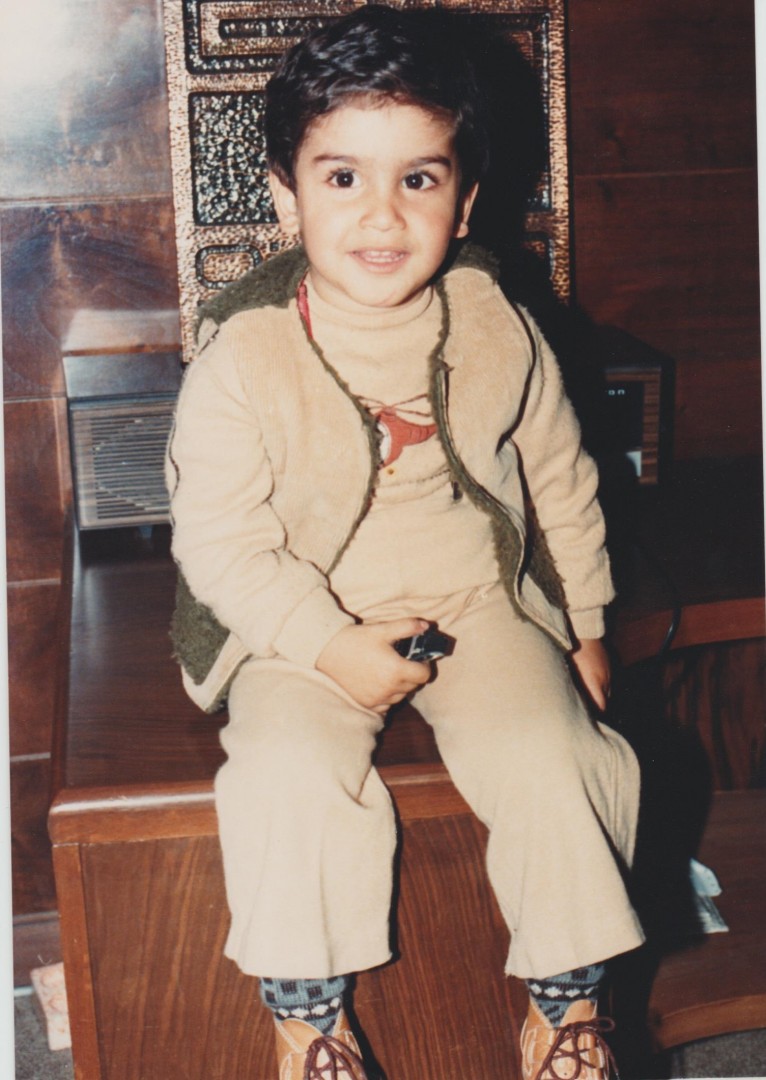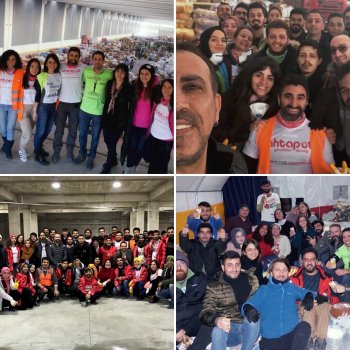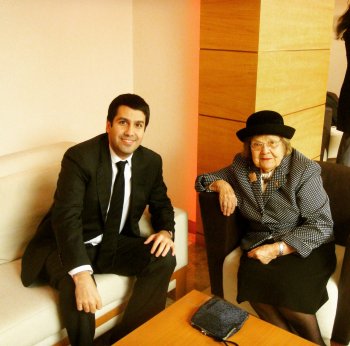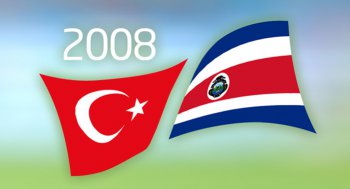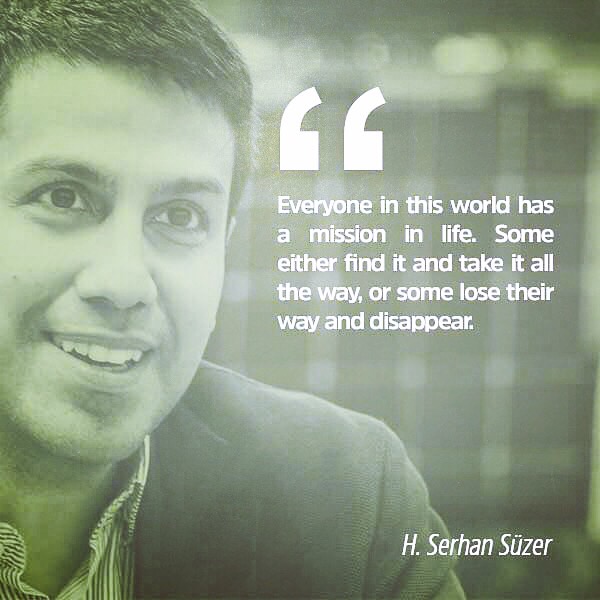Charting a path from Moka to Bonbon…
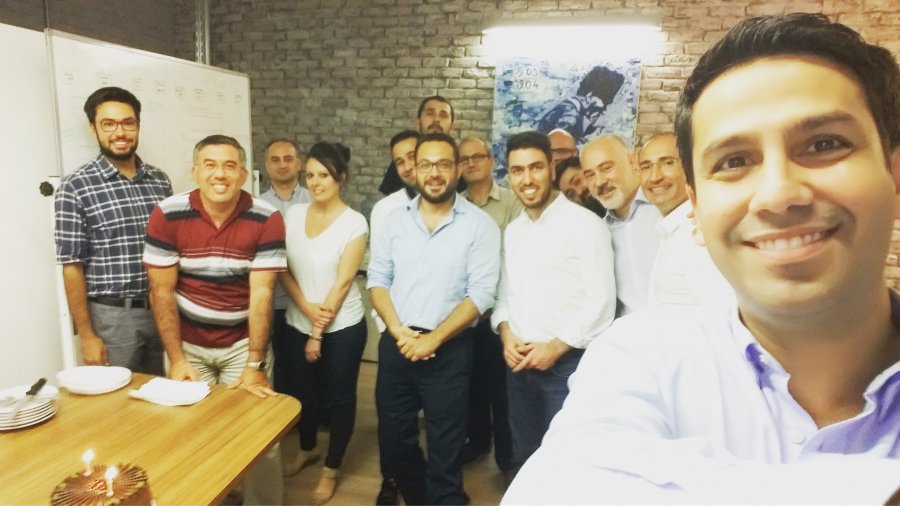
Even as we celebrate the second anniversary of Moka, the fintech company I founded, I have lost no time in launching another company in this field. As I continue to make progress along the two main paths I charted for myself many years ago – sustainability and financial technology – I instinctively avoid repeating the same mistakes at critical junctures and turn problematical situations to my advantage, skills I probably developed through the way I was raised
Ever since I was little I would talk to my father as though I were a grown-up. As a member of the third generation of an entrepreneurial family, familiarity with the family business came naturally. I was as young as five when father first let me sit in on semi-official meetings and as of my high school and university years I attended every sort of meeting. When I was a boy, my brother Baran and I would hang out in the conference room while meetings were underway.
Sitting with Mom and Dad in his office...
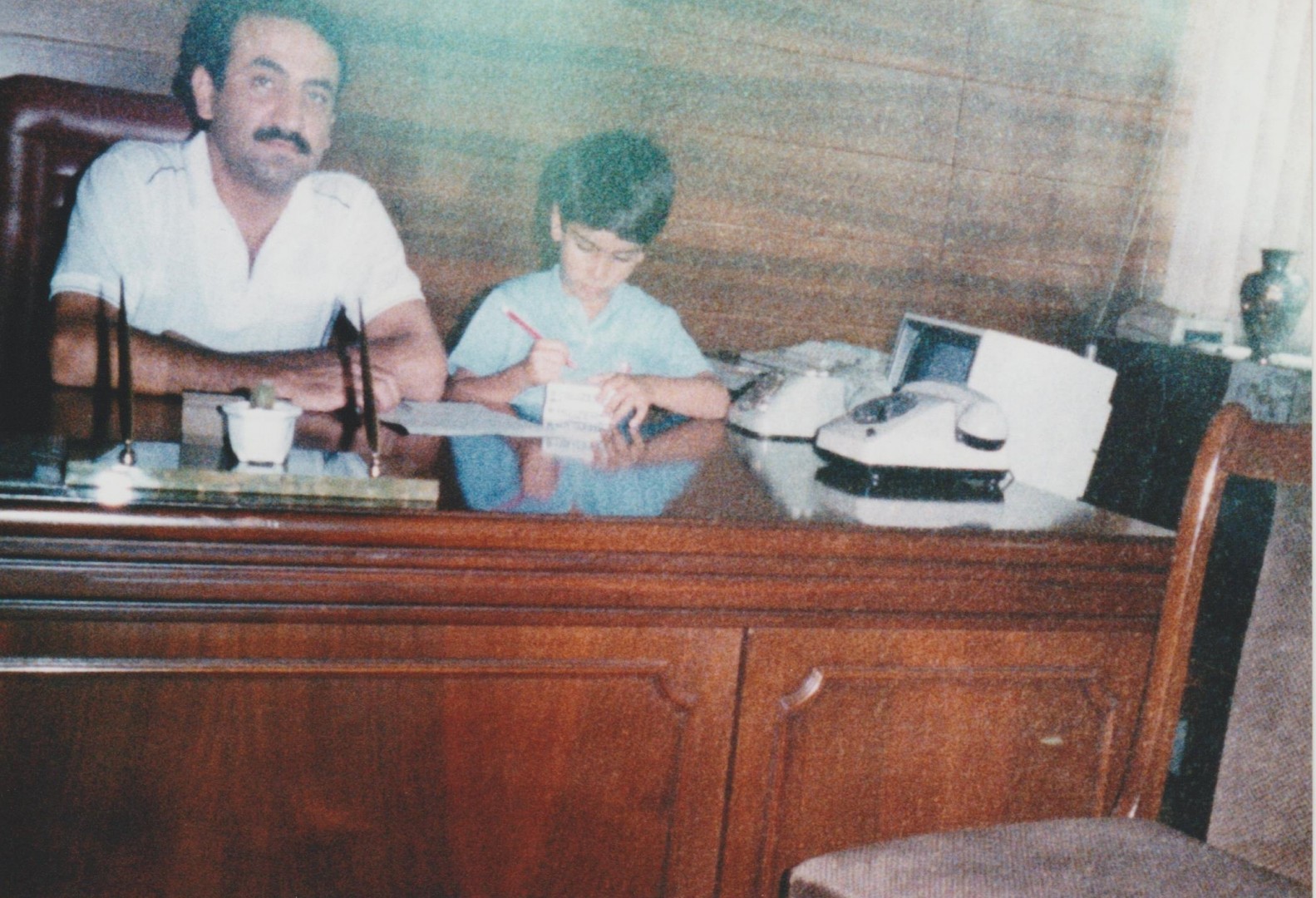
In Dad’s office again, trying to act like a grown-up
Serhan the Tyke in front of the old Süzer Holding logo
It seems illogical for children of that age to be permitted to listen in on meetings. That’s what I thought at the time. Now I understand. One grows accustomed to certain concepts, acquires knowledge by listening, develops a set of reflexes and finds that over time is easier to comprehend everything more quickly. What’s more, some of those meetings were simply interesting and fun. For example, I was 11 or 12 years old when plans were being designed for Bahçeşehir, a satellite city in Istanbul, and I was included in the task of choosing names for the streets. First we debated what the concept would be. When the names of flowers were agreed upon, a list was prepared. What was left was the fun part: a discussion of whether to put Rose Street next to Orchid St. or next to Daisy St., etc.
If I remember correctly, I was a middle school student when the subject of money was raised in my father’s office. Don’t misunderstand, it wasn’t that I was particularly interested in money. I had just learned during a homework assignment that the Lydians were the first to use money, and found that fascinating. I remember saying to Father that in the same way it seemed funny to us that gold coins were once a form of currency, future generations would laugh at our use of banknotes. “Money will definitely take on a new form one day,” I predicted.
In university I saw that that day had arrived. I studied during the dotcom bubble days of the 1990s and closely followed technogical developments, so it was easy to see that everything would be digitalized. Money, too, can become digital.
Since then, a lot of water has flowed under the bridge. After graduation, I worked for a time at the American headquarters of Italian insurance company Generali before returning to Turkey. I then completed by military service and had to deal with the Kentbank complications as soon as I started working in the family business. You can find a detailed account of that here: http://serhansuzer.com/en/my-15-years-in-business-and-notes-on-the-future
Fintech is something else!
In 2007, a time when we things were going smoothly again at the holding, my father arranged for the son of a friend to make a presentation to us. I was impressed by the “campus card” project in place at this bright young man’s university and realized I’d fallen hard for financial technology.
I prepared a report calling on us to get involved in this project but the board, which had the final word on business development projects, was unconvinced and we rejected the proposal.
At the end of 2011, having founded my own company to develop solar energy technology, I had no intention of investing in additional projects. In 2013, I sold that company to a foreign investor and launched a new enterprise that would focus exclusively on renewable energy projects this time. That is how EkoRE was founded. It was around that time, during a meeting related to other sectors I was attending, that I was visited by Keiretsu Forum General Secretary Aslı Işınak Gözören. Keiretsu Forum is a Private Equity Angel Network. Briefly, it can be described as a platform whose members seek private equity funding opportunities in start-ups or early stage companies, investing as a minority stakeholder or getting involved early to then sell their shares at a higher value once the company has been built into a successful venture. Launched in America, angel networks such as Keiretsu Forum bring together investors and those seeking private equity funding all across the world. Companies seeking funding from Keiretsu Forum tend to be technology firms that are innovative and have a strong entrepreneurial spirit.
This platform appealed to me. I decided to become a member, partly out of curiosity and partly because of Aslı Gözören’s pitch. A Turkish-Canadian managing the Istanbul office of the angel investment network, Aslı Gözören represented a business culture and professionalism I was very accustomed to. I made a spur of the moment decision.
I became a member of the network in November of 2013 and the first project presentation I witnessed at the first meeting I attended in December was Moka. It was a nice coincidence that the first project I was presented with was in fintech. I listened to the other presentations but none of them interested me. On the form placed in front of me I wrote a note indicating that I wished to meet with Moka entrepreneurs Seyfi Erol and Levent İlhaner.
We began meeting as of the end of January. Levent and Seyfi are also the founders of amerikadaniste.com. They developed the software for Moka in their own company. From what I could see, though, there were some business plan and feasibility issues. I worked with various consultants to study the technical, legal and financial aspects of the business.
A Turkish pointer seals the deal
I was on the verge of a final decision over whether to go ahead with this investment when I participated in the Runtalya 10k run in Antalya one weekend, an event I’ve already written about: http://serhansuzer.com/en/runtalya-anatomy-of-a-run .On the day before the run I was relaxing on the sofa in the hotel lobby when a lovable dog sprang up onto my lap in search of affection. I was happy to oblige. We hit it off immediately. A few minutes later the dog’s owner came up and the following dialogue ensued:
— Mokaaaaaa, where are you? I’ve been looking all over for you.
— Is your dog named Moka?
— Yes, Moka.
— Why Moka?
— She’s the same color as mocha, our favorite coffee.
I took this as a sign I should invest. I’m not at all superstitious but I do believe that certain coincidences are significant and not really coincidences at all. That dog’s name sealed the deal for me. We continued chatting:
- You’re dog’s a real sweetheart. I just love her.
- Thank you. She’s a hunting dog, actually. I’m amazed. Moka doesn’t normally approach people. In fact, she growls and barks at just about everyone but my husband.
- She seems so friendly. I thought she might be a hunting dog -- so high energy. What breed is Moka?
- Çatalburun. It’s a kind of double-nosed or split-nosed pointer.
- There’s a breed called Çatalburun? What country are they from?
- It’s a Turkish breed with origins in Mersin. Everyone has heard of the kangal breed from Sivas but few realize that there are some other wonderful breeds from Turkey.
- I love this breed.
- She loves you, too. Look, she doesn’t want to leave your lap. If my husband were here he’d be jealous.
- She must need to roam outdoors a lot.
- Yes, we just came in from a walk. She gave me the slip, came in through the balcony and ended up on your lap.
- I’m glad she did.
We were interrupted by a friend of mine. As soon as he sat down Moka started barking furiously. My friend, an animal lover, smiled in response. Moka kept barking, determined to scared my friend away from his seat. The woman’s husband arrived.
“Naughty girl. What are you doing here?” he called out to Moka, who ignored him and stayed in my lap. The husband did look jealous as he scowled and told his wife to take Moka out to the garden. The wife turned to me and said, “We’ll be sitting in the garden. When you get bored with Moka, please bring her out to us.” I continued drinking my tea, Moka still nestled in my lap. After a time, I took Moka outside as agreed.
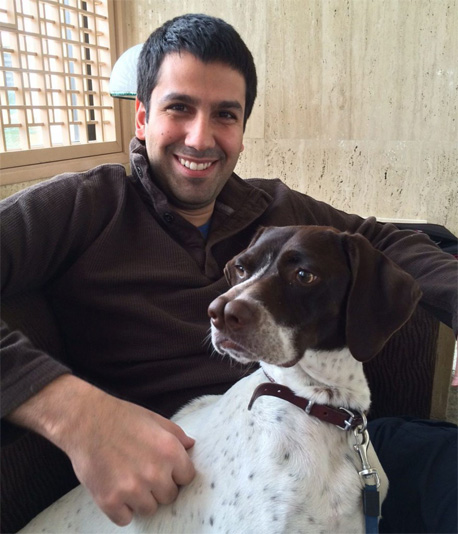
Pleasurable moments with Moka
The waiter informed me that the dog’s owner ran the hotel. After a successful run, I returned to Istanbul on Sunday with my mind made up.
Moka start-up
That week in Istanbul I intensified my schedule of meetings. During the following weeks we discussed all of the details and negotiated. Changes we requested were made, we concluded all of the subjects up for discussion and on August 14, 2014 we founded the company. Thus was concluded the process that had begun in January of 2014, from technical, financial and legal studies through agreeing on a business plan and management. Moka Payment was launched from scratch, and the software prepared by my partners, along with their associated rights, became the property of the company. And so what it was that Moka began operations as a start-up.
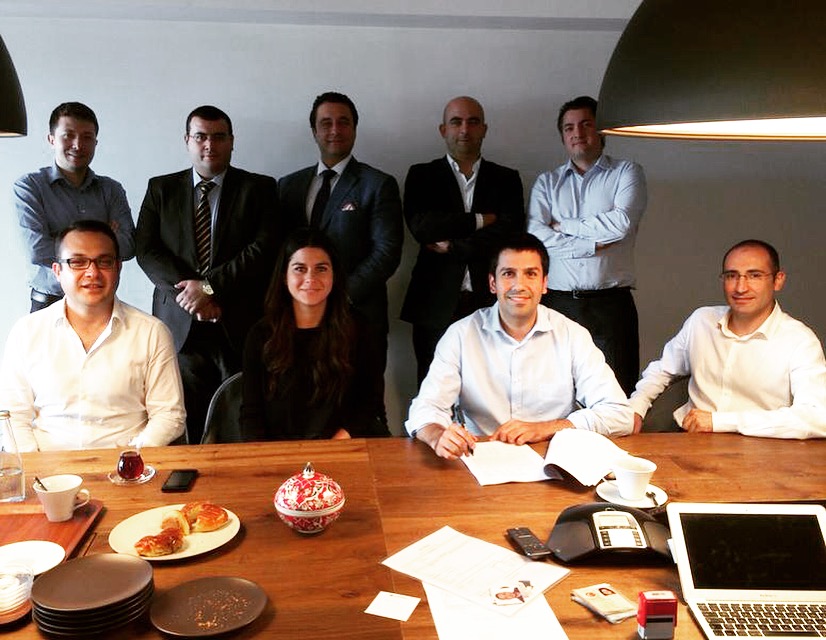
Signing the company formation documents for Moka. Seated left to right are: Moka co-founder Seyfi Erol, our lawyer Yasemin Mürsaloğlu, me, and Moka's other co-founder, Levent İlhaner. Standing left to right are: Lawyer Aytuğ Büyükatak from Seyfi and Levent’s law office Başpınar & Partners, our Financial Consultant Alper Gerdenari, Burçak Ünsal, the lawyer and partner from Ünsal Law Office who represented me, Başpınar & Partners partner Kaan Gök, and Seyfi and Levent’s financial consultant Kunter Barlak.
Let me add something here. The word “moka” might be the Turkish for “mocha,” but the company name actually combines the first two letters of the Turkish words “mobil kart” (mobile card) and “mobil kasa” (mobile cash register). We decided it was a catchy term.
We were also able to acquire the site www.moka.com, which worked out well.
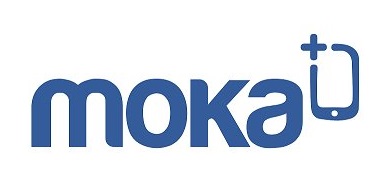
Our search for our first general manager ended with İlker Bey, who had impeccable references as one of the leading fintech experts in the world. He was someone who had grown up in Germany, pursued a career in Great Britain, and achieved a number of firsts in his sector. Experienced in digital platforms and business development for Sony and Amazon, he was a member of the founding team for Amazon Germany. He then moved to the agency side of things and worked for an extensive period in Berlin and London developing innovation strategies and mobile projects for such leading brands as Yahoo, Microsoft, BBC and BMW. He became an expert in the development of next generation financial services, assuming important duties for the mobile wallet projects of Visa, Turkcell, O2 Telefonica and Softcard. He joined us in September of 2014.
We looked at a lot of potential offices until finally, at the recommendation of İlker Bey, we decided on the Alarko Business Center in Karaköy. The high ceilings and open office space in this historical, attractive building suited us. A few months after we moved in the restaurant space below was let. While Mitte would become a popular dining spot, we, on the floor above, were not only disturbed by the construction but could feel the whole building shaking. Despite repeated warnings, they kept at it during office hours. We endured this for four or five months. When Mitte did open I was too angry to eat there until just the other day, at the invitation of a close friend from high school.
Innovation and murkiness
Our participation in the international Istanbul conference and exhibition known as “Retail Days” was our first major marketing activity. There, in front of an audience of professionals, İlker gave a presentation in which he outlined innovations that include “push notification” of discounts and promotions via cell phone, the use of an app that allows customers to conveniently make payment without having to wait in line and a number of other features that interest retailers.
Despite all our efforts the software specially prepared for the retail sector did not achieve the results we had wanted. As someone who has been active in retail for many years, I know the sector well. The real problem is that in the Turkey the sector is not open to this type of innovation and users are psychologically unprepared to use an app to make payment. It took me quite some time to realize this.
Administrative issues contributed to what became a difficult period. İlker Bey knew the sector well. He had mastered all the details. Most importantly, he had a sterling character and was as honest as they come. But he experienced challenges in adapting to this country, particularly when it came to managing other professionals.
We decided to find a new general manager. After a round of interviews, Selim Güsar became our second general manager. Selim was an experienced manager with a long and successful background in banking, after which he became assistant general manager responsible for marketing and combating fraud at the Interbank Card Center (BKM), an organization that partners with Turkish public and private banks to achieve seamless and secure payment solutions. He had the management skills we needed and sorted out our team. We also retained the services of our first general manager, İlker, whose international experience was important for me in terms of my top goal of creating a global brand in the areas of fintech and renewable energy. He kindly agreed to stay at Moka as a member of our board. Our fundamental problem, however, still remained: our business model.
At around this time I was chatting to someone whose opinion I value about how fintech is not an easy sector and how so many fintech companies are in the red. I mentioned that we were having some difficulties but would resolve them. He asked how I expected to turn a profit when everyone else was losing money. Naturally, the way the question was phrased bothered me. Not letting on that I was upset, I said, “Everyone else might be losing money but I’m going to make this profitable. In fact, I’m going to turn it into an international enterprise. You’ll see.
Being decisive and flexible
One Friday in the first months of working with Selim we had a critically important meeting with our partners at Juno in Nişantaşı. This is what I said to Seyfi and Levent at the meeting: “Fintech is a vast untapped field with numerous subcategories. We mustn’t lose money by insisting on something the sector is not ready for. Either we give up or we find a different area in fintech to focus on and continue in different direction. My position is to continue investing in fintech no matter what.”
We discussed a range of business models. At one point, Seyfi mentioned something about what a company for paying bills had done and I reflexively asked for more details. He didn’t know the details but said he could ask someone who did. He got someone on the phone from PwC and switched on speakerphone. I was able to pose my questions to the person on the phone. By the end of the conversation, I had been convinced. I told the two partners that we should go into that business. They agreed.
We revised our business model and began preparing a completely different one for paying traditional bills. We bought the software from another company and quickly entered the sector. We began with the most basic model. In no time we had set up a dealer network. Within one and half years we had 5000 dealers across Anatolia through which we were able to present our bill payment service.
We added phone minutes to the network. We also discovered that we could make possible other kinds of collection. We began offering a virtual POS service. Various companies and organization began making their payments through our POS service.
Meanwhile, we received a “Payment Agency” license from the Banking Regulation and Supervision Agency. Everything had fallen into place.
In addition to virtual POS, we continued positioning ourselves as an agency for payments for different kinds of organizations and business models. We continued rapidly producing solutions for payment issued faced by a number of different sectors.
Despite sectoral problems, Moka is now a promising company with an established staff and soaring revenues.
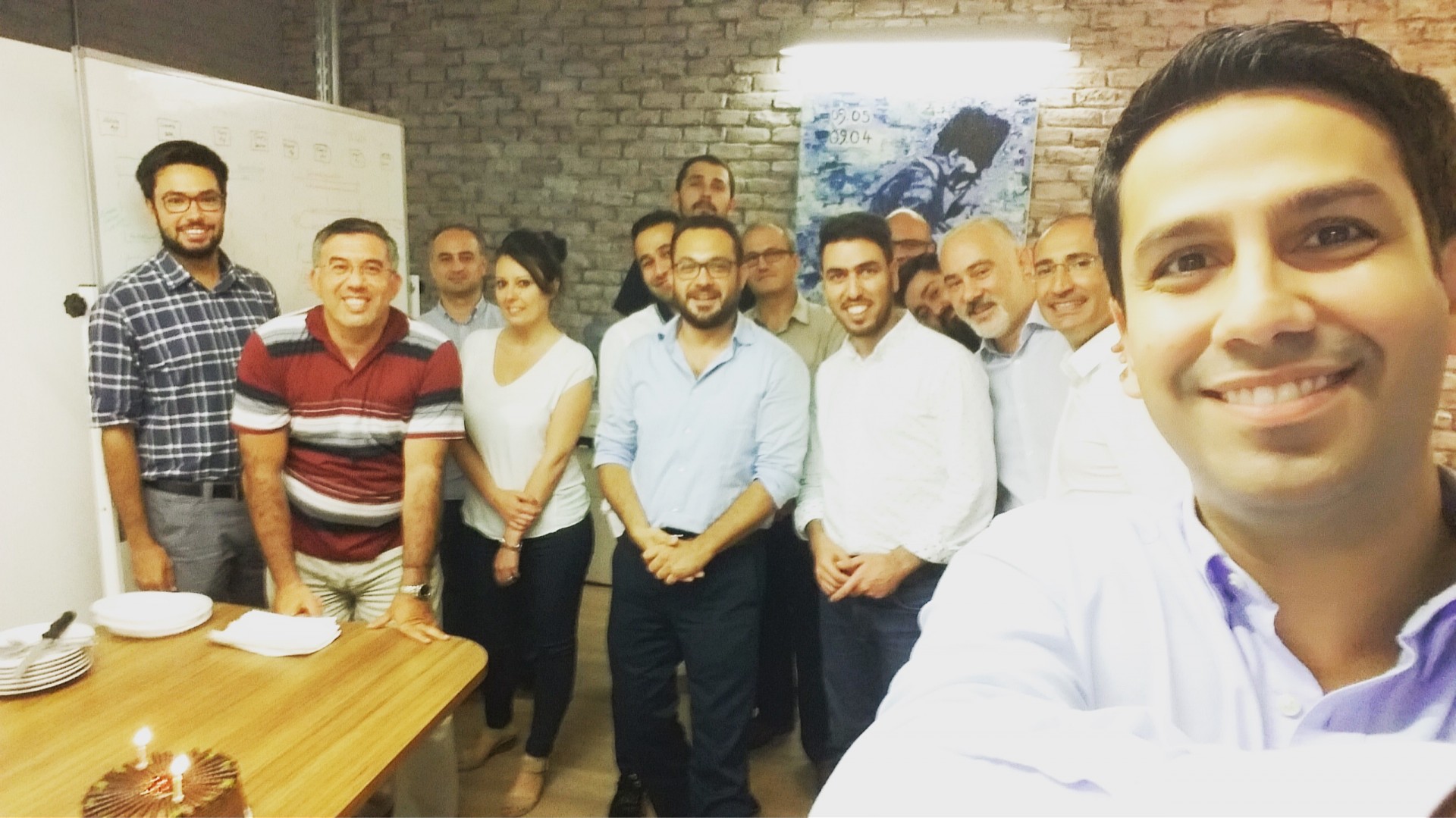
Celebrating two years
In terms my overall vision, I had set my sights on two fields: renewable energy and sustainability. My career in the former began with solar energy, added wind power after three years and, once I am satisfied with the progress we have made, we will begin focusing on biogas.
The other field was fintech. As outlined above, we started off with Moka and are continuing with bill payments, phone minutes, virtual POS and other services for which we are developing payment solutions.
Delicious technological solutions!
Moka turned two in mid-August. In terms of the sectoral vision I outlined above, I have also founded another company.
Seyfi and Levent chose the name Moka. I chose a company name that also appeals to the taste buds. The new company is Bonbon. Officially named Bonbon Technology, Inc., it is a next generation technology company focused on the information sector and founded with the goal of developing innovative mobile technologies integrated with IoT in many different areas. Bonbon Technology is particularly focused on developing innovative solutions to address the fundamental problems faced by SMEs and business, to simplify commerce and to take business to a completely different dimension. The products developed by Bonbon data is collected and analyzed by artificial intelligence algorithms to maximize workplace profits.
Bonbon integrates many different processes as a service for SMEs, from SME management system and customer management through sales to inventory follow-up and business reporting. Along with the many advantages of mobile power, it offers solutions for all the needs of the workplace, bringing a mobile application to business owners and solving issues managers may not even be aware of to boost sales with instant redirects.

The Bonbon logo
The Wi-Fi Analytics in Bonbon’s patent process address a fundamental problem left unresolved for many years despite the development of numerous now outdated Technologies, namely "instant location data accessible through Wi-Fi to get specific data analysis solutions." Through technology developed by Bonbon, the analysis of customer behavior at the point of sale is location-based, with no need for apps, Bluetooth, Wi-Fi connection or mobile applications. The solution is focused on customer behavior, instant sales, and real analysis based on location and profile. In this context, data collection, processing and the production of meaningful reports rests on the foundations of the concept “Internet of Things.”
I think that this time we will achieve the necessary breakthrough in the retail sector. While Moka continues to focus on individual and company-based solutions, Bonbon will continue on its way making a difference in the retail sector.
I’ll write more about Bonbon at a later date. For now, let me share a link to our website: www.bonbon.tech. Here’s hoping for the best with Bonbon Tech.
As I wrote in earlier posts, I decided to step up my investments in this post-coup climate. Bonbon is the first fruit of that decision. I will accelerate the pace of investments in sectors in which I am active. I recommend that all businesspersons and entrepreneurs do the same, despite the obvious challenges. We need to step up and take a stand for our country.
I will also do all I can to help develop technology that serves people in the sectors in which I am active. I will continue to be passionate about different kinds of technology. We will see where that passion leads.
Hoping to see you here next week…
Tag: iş dünyası



